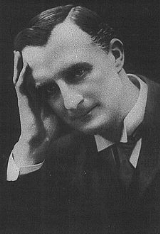
, PC
, FZL
, DL
(25 April 1862 – 7 September 1933), better known as Sir Edward Grey, Bt, was a British Liberal
statesman. He served as Foreign Secretary from 1905 to 1916, the longest continuous tenure of any person in that office. He is probably best remembered for his remark at the outbreak of the First World War: "The lamps are going out all over Europe. We shall not see them lit again in our time
". Ennobled as Viscount Grey of Fallodon in 1916, he was Ambassador to the United States between 1919 and 1920 and Leader of the Liberal Party in the House of Lords between 1923 and 1924.
Books are the greatest and the most satisfactory of recreations. I mean the use of books for pleasure. Without books, without having acquired the power of reading for pleasure, none of us can be independent, but if we can read we have a sure defence against boredom in solitude.
![]()
Poetry is the greatest literature, and pleasure in poetry is the greatest of literary pleasures. It is also the least easy to attain and there are some people who never do attain it.
![]()
There is much poetry for which most of us do not care, but with a little trouble when we are young we may find one or two poets whose poetry, if we get to know it well, will mean very much to us and become part of ourselves... The love for such poetry which comes to us when we are young will not disappear as we get older; it will remain in us, becoming an intimate part of our own being, and will be an assured source of strength, consolation, and delight.
![]()
Some one, I think it was Isaac D'Israeli|Isaac Disraeli, said that he who did not make himself acquainted with the best thoughts of the greatest writers would one day be mortified to observe that his best thoughts are their indifferent ones, and it is from the great books that have stood the test of time that we shall get, not only the most lasting pleasure, but a standard by which to measure our own thoughts, the thoughts of others, and the excellence of the literature of our own day.
![]()

